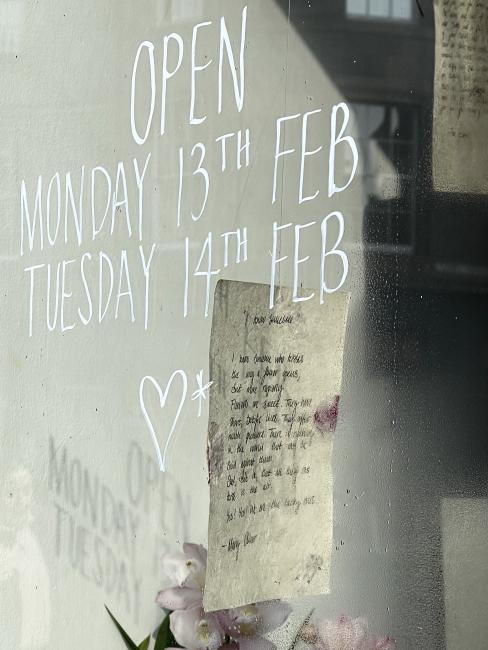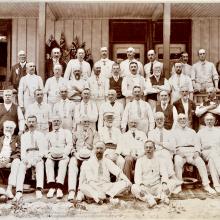
VALENTINE THOUGHTS IN A TIME OF WAR
[Taken from the Scotsman, 14 February 1941. A condensed version of this article appeared under a different title in Issue 325.—AM]
IT ought not to be necessary to point out to the more romantically inclined that this is St Valentine’s Day. Not even the din and clamour of war or the much publicised invasion will rob the indulgent saint of his traditional honours.
It is not every day in the year that the lover can declare his affections under such benign auspices, and to-day’s mails will be heavy with tender greetings.

His Majesty’s Post Office, in a felicitous moment, has come to the impatient lover’s aid with those charmingly decorated telegraph blanks on which the writer can enscroll his adoring sentiments. Heavy indeed is the responsibility of the uniformed lad who is entrusted to deliver them. In the United States the transmission of sentimental telegrams has developed into quite an art. It is a common event in that enterprising country for a citizen, on his or her birthday, to open the door and discover a telegraph messenger chanting shrilly and a little self-consciously that repetitive little ditty beginning ‘Happy Birthday to You!’ This choral transmission has even been carried a stage further by the employment of individuals whose delicate vocation if is to sing endearing confidences over the telephone.
Fortunately for him, the British telegraph messenger is not expected to sing or recite Valentines on the threshold—those sturdy youths would rebel at such a prospect. But the intelligent messenger will find ways of discharging his tender duties in a mood worthy of the occasion—an understanding grin or a friendly wink should not strain his resources overmuch.

The true Valentine should, of course, be composed in verse. The professional poet is at an advantage in this respect on the fourteenth of February. If he is astute he can profitably offer his services to those less practised rhymers who, called upon to express themselves in metre only once a year, approach the literary exercise with diffidence and misgiving. The recipient, however, is anything but a severe critic, and pleasure is undisturbed by any petty metrical irregularities. On this day the most halting rhyme is cherished equally with the polished couplet.

Those scholarly persons who like to know to whom they are indebted for the privileges of this day will find themselves faced with a pretty mvstery for there were two Saint Valentines, both of whom were martyrs, and both of whom were buried on the same day. The less exacting will be content with the knowledge that Valentine is a name which falls sweetly on the ear and that the festival is celebrated on a date when spring makes her first timid overtures to winter.

The only drawback to the Valentine is that it does not necessarily imply sincerity. The unscrupulous and base can put it to fickle purposes. Hitler is perfectly capable of sending Valentines to the unwary. His mind, untutored in the service of verity, seizes the opportunity of protesting unswerving affection, when bent upon avaricious designs. Cupid in the dictator’s grasp may be employed in the service of cupidity.
Image top-right: Design by freepik.com.
*****
The poem shown hanging in the window of Narcissus Flowers is 'I Know Someone' by Mary Oliver.



